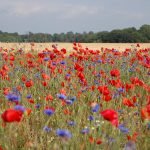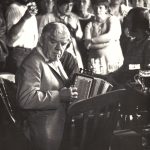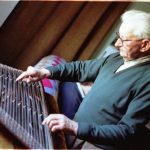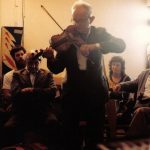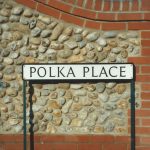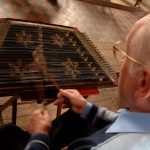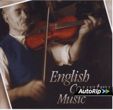Some people are surprised to find there is such a thing as English traditional music – surely all those diddly tunes you hear played in the pub must be Irish or Scottish? Well actually, we have a rich heritage of instrumental dance music in England too, although the ‘tradition’ was all but broken in the early 20th century by the huge impact of the First World War on communities all over the UK. However, traditional music-making carried on in some pockets of England, particularly in the area where I live, in the region known as East Anglia – Suffolk and Norfolk.
I am generally thought of as an English musician – whilst that is true in that I’m a musician from England, the implication that I play entirely English music is not quite so accurate. The English are a pretty mixed bunch ethnically speaking and, as in so many aspects of life, we have picked up influences from around the world: that’s why our language is so rich and interesting and why we have such a diverse restaurant scene.
So whilst my style is certainly English, and has even perhaps helped to define the ‘East Anglian’ style for a while, the content doesn’t bear too close a scrutiny if you’re looking for something purely English – that just doesn’t exist, as it never existed in a vacuum, any more than Irish music did … cue controversial discussion!
Influences
When I was starting to play the melodeon as a young adult, the English Music revival was just bursting out, with Rod Stradling’s English Country Music Weekends providing fertile and exciting ground for musical adventures. I started out playing for a women’s morris side, in the days when that was still quite controversial. Then I got stuck into the wider range of tunes used for ceilidh dancing and the world was my oyster …
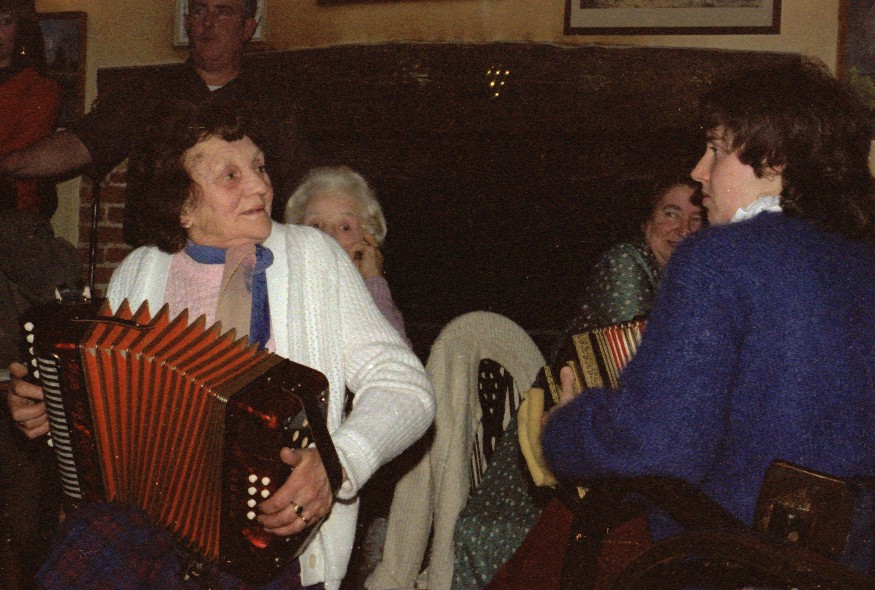
The move to Suffolk in 1978 brought the traditional music of the area into the foreground for me and I have spent many years since playing the repertoire of polkas and stepdance tunes I learned to play alongside the older generation of musicians such as Oscar Woods, Fred Whiting and Dolly Curtis from Suffolk and Billy Bennington from Norfolk. That same year I met Bob Cann from Devon, who became a lifelong friend and huge influence on me, and soon after I met another massively influential musician, Reg Hall, who had recorded the seminal English Country Music album in 1965 with Walter & Daisy Bulwer, Billy Cooper and Scan Tester. Another influence from further afield and from a different style was Will Atkinson, mouthorgan player from Northumbria, whom I met in the 1980s. Among the many musicians who have inspired me over many years are Dan Quinn and Will Duke from Sussex, Johnny Adams from Yorkshire and all my bandmates over the years: none more than the wonderful Reg Reader, dulcimer player from Suffolk, with whom I played for 35 years until his death in 2014.
Click on the image below for the full picture.
Repertoire
So to my ‘English’ repertoire.
It does contain a lot of English material, mainly from the southern half of the country – polkas from John Mason in Gloucestershire, Scan Tester in Sussex, hornpipes from Dolly Curtis and Font Whatling in Suffolk, schottisches from Billy Bennington and Percy Brown in Norfolk, jigs from Bob Cann in Devon and Will Atkinson in Northumbria and an eclectic selection of tunes that appeal from Shropshire, Hampshire, Lincolnshire …
But hang on a moment, what’s this tune on the album ‘Island to Island: traditional music from Ireland & Newfoundland’ (OSSCD131) – Hughie Wentzell’s Single? Why it’s Oscar Woods’ Polka from Suffolk of course! And what’s this tune played by the irrepressible Irish fiddler Con Curtin at the Fleadh in Listowel, Co. Kerry in 1973? None other than that quintessentially English tune Speed the Plough! Other stalwarts of the English repertoire such as The Cliff Hornpipe, Speed the Plough, Soldier’s Joy, are also known in Ireland and north America.
I have found many appealing tunes in field recordings from Australia – Charlie Batchelor and Sally Sloane being the best known fiddlers, but I came across others too via the generosity of Michael Manhire from Tasmania, whom I met in the late 80s and who sent me numerous recordings on cassette tapes. In the early 80s bandmate Ted Stevens had enthusiastically introduced me to some of the Quebec repertoire through the 1920s recordings of Alfred Monmarquette and we learned of the marvellous fiddle music of Rufus Guinchard from Newfoundland when he visited England. All of these countries and regions are thought of as having Irish-influenced music, but the links with English music are clear too, especially in the case of the Australian bush music, which is very heavy on polkas, schottisches and waltzes. In the early 90s I met Jeannie McLerie & Ken Keppeler (Bayou Seco) and we shared a memorable kitchen session at Broadstairs Folk Festival of weirdly crooked tunes from Arizona and New Mexico which has led on to a long friendship and some occasional collaborations.
Comments
I like the feeling of playing music that has been shaped by many hands before me, each leaving their own fingerprints on it, and me adding mine.
I like it that many tunes don’t have ‘proper’ names but are referred to by the person from whom the musician learned it – how many tunes do I know that are referred to as Oscar Woods’ polka / jig / waltz? Yes, I know it’s confusing, but it gives us a connection with Oscar and also makes us discuss which tune it is we mean … there are too many sessions where people don’t seem to talk to each other! I like a music session to be sociable as well, with a bit of ‘crack’ about it.
English music has moved on apace these days and I don’t much like some of the directions which it has taken – further away from the aural tradition into more fanciful stuff found in older manuscript collections, and in the case of melodeon styles, with a much more continental cross-row style than that based on the old pull-push diatonic style – but, fortunately for me, there are still regular chances to meet up, play and talk with like-minded people in convivial settings!
To investigate English traditional music further:
English Country Music (1965) for the crackly, scrapy, exciting sound of ‘old boys’ playing
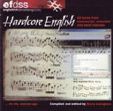 Double CD Hardcore English (2007) for a great collection of bands playing chunky, steppy polkas and hornpipes.
Double CD Hardcore English (2007) for a great collection of bands playing chunky, steppy polkas and hornpipes.
To read more about English traditional music:
- Ian Anderson’s sleeve notes for ‘Stepping Up: A short history of the new wave of English Country Dance Music’
- Keith Summers’ article: ‘English Country Music – a tradition in isolation?’
To investigate East Anglian traditional music further:
Visit the East Anglian Traditional Music Trust’s website or read my book Before the Night Was Out.


